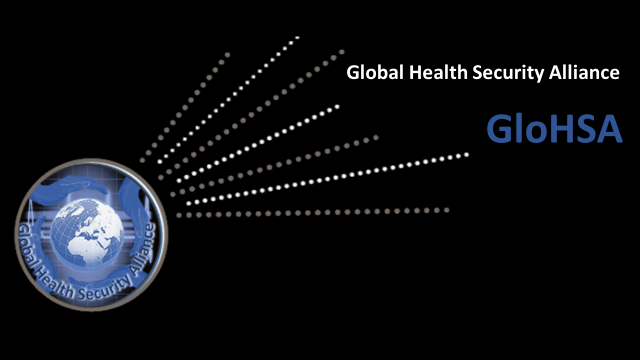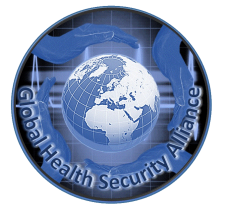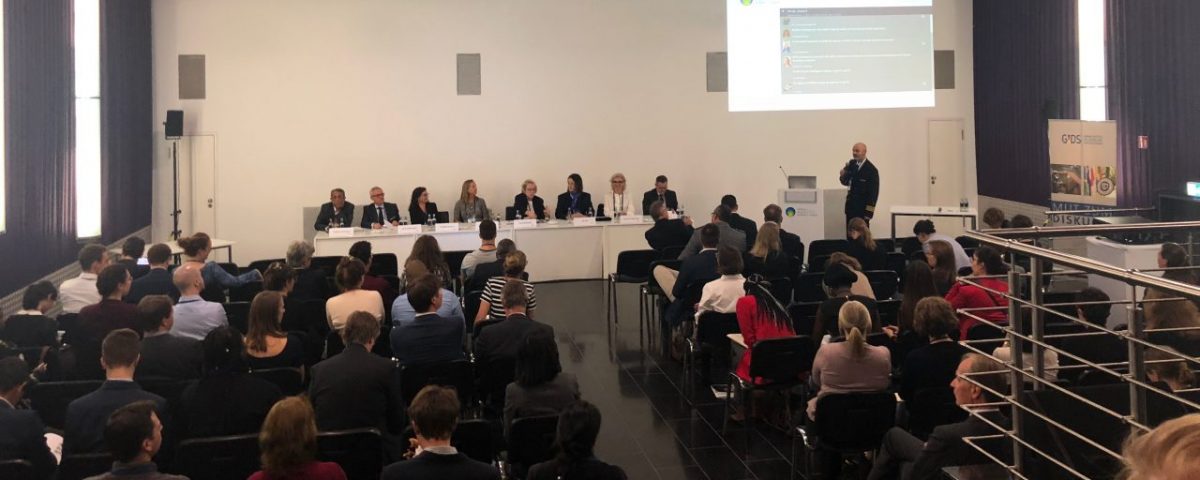- Have any questions?
- info@glohsa.com

World Health Summit: GloHSA Session on ‘Disease X’
23. October 2018
GloHSA Press Release about the Ebola Outbreak in DRC
15. November 2018Disease X – Will we be able to find it in time and respond appropriately
GloHSA and the German Institute for Defense and Strategic Studies recently hosted a panel at the 2018 World Health Summit in Berlin. The topic was “Disease X – Will we be able to find it in time and respond appropriately?”. This was in response to the fact that WHO recently released its updated list of diseases of public health concern. A new addition to that list is “Disease X” which represents “the knowledge that a serious international epidemic could be caused by a pathogen currently unknown to cause human disease”. In addition, in January 2018, the World Bank released it’s “Operational framework for strengthening human, animal and environmental public health systems at their interface” report. It recognized that the majority of emerging infectious diseases have originated in animals, and recommended that it is time to start “targeting disease threats upstream prevention at the source, or via early detection and response to help reduce the frequency and impact of emergencies the system has to react to”.
Now that the need to detect public health threats in animal populations prior to spill over into humans has been recognized, the question is, how will this be accomplished? Can it be accomplished? The information shared by panelists suggest the answer is no. Not unless there is a paradigm shift in our thinking and the manner in which veterinary capacity is addressed.
“The developing world could be especially vulnerable to an outbreak of an emerging infectious disease that originates in wildlife. The U.N.’s Food and Agriculture Organization (FAO) recently sent expeditions to 13 countries in West, Central and East Africa to evaluate surveillance systems for animal diseases. McNamara called the results “sobering.” [27 Devastating Infectious Diseases]
“There is a lack of capacity on several levels,” said Sophie von Dobschuetz, FAO global surveillance coordinator. As in the U.S., there is often a disconnect between public-health services and veterinary services, and relative to human health, animal health gets fewer resources, von Dobschuetzsaid. Moreover, she added, a lack of resources in the field might prevent veterinary workers from carrying out sampling. Central laboratories for testing samples are often far from the field, and labs in the field, if they exist, may not be functional because they lack basic supplies. Civil unrest, terrorist attacks and war might keep surveillance from being done in the field. “These are all things that prevent us from finding the disease at the source in the animal host in a timely manner,” von Dobschuetzsaid.” https://www.livescience.com/63862-disease-x-animal-source.html (An Unknown ‘Disease X’ Could Become an Epidemic. Can We Find It Before It’s Too Late? By Megan Gannon, Live Science Contributor | October 18, 2018)
Profound weaknesses in the veterinary sector will make surveillance for emerging disease threats or antimicrobial resistance a challenge. A new approach to real-time surveillance may also be in order. Most important of all, critical gaps in available data on funding to build veterinary capacity as part of the GHSA were identified. The World Bank has accepted the challenge to obtain this information so that policy makers and external donors can make informed decisions about funding One Health efforts in the future.





